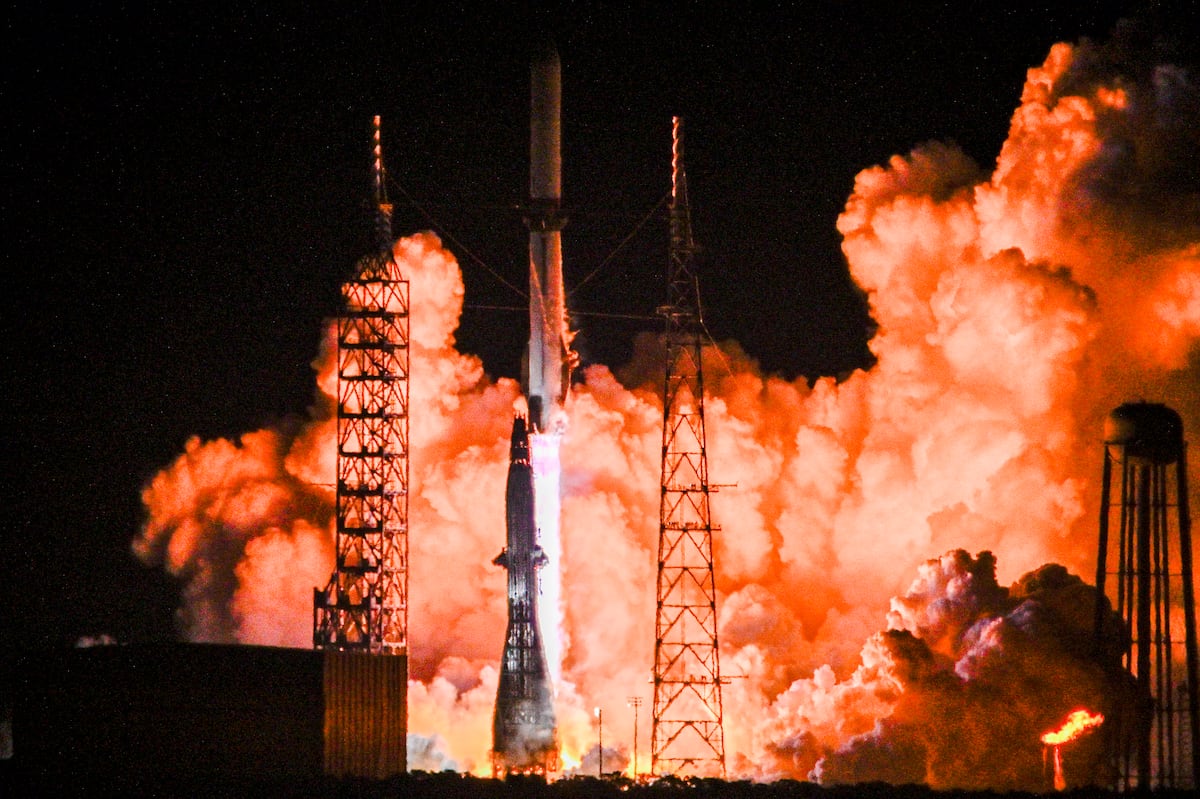

With a 10-year, $4 billion contract in hand, the company managing the Space Force’s range operations is laying the groundwork to help the service support the ever-growing demand for commercial and military launches.
The Space Force awarded the work to Amentum in late May, choosing the company over its incumbent launch range support provider. That firm, RGNext, protested the deal, but announced last week it would drop its complaint.
The sweeping contract covers operations and maintenance of the Space Force’s two major launch ranges: Cape Canaveral Space Force Station in Florida and Vandenberg Space Force Base in California. That means oversight of launch facilities, radar sites and all of the flight-tracking hardware and software.
Managing those tasks as efficiently as possible is part of what has allowed the service to juggle the boom in launch demand over the last five years. Between 2020 and 2024, the number of commercial and government launches supported by Cape Canaveral — by far the busier of the two ranges — jumped from just 16 missions to 93. This year, the Cape is projected to conduct 150 launches and Vandenberg 70.
Randy Lycans, Amentum’s senior vice president and program manager for the Space Force Range Contract, told Defense News the company’s goal is to help the service streamline and manage range operations so that it can support even more launches in the coming years.
The company is currently laying a foundation to ensure a smooth transition to the new contract and is on track to assume operations by Dec. 1.
“I’m hopeful that in six months, we’ll start to see some specific benefits being returned,” Lyans said. “I think the real measure is going to be how many launches are going to achieve in ’26 versus ’25.”
Amentum’s approach to facilitating more launches is to reduce the cycle time between missions so that companies can quickly and easily move through the launch process. That means modernizing all aspects of operations by injecting new technology, implementing a new concept of operations for running the ranges like commercial spaceports, making analog processes digital and maintaining and recruiting the technical talent needed to operate various range infrastructure.
Lycans noted that the company plans to retain most of the 1,200 personnel from the previous range contract.
The company plans to implement an intelligent asset management tool to track thousands of pieces of hardware that need to be serviced and maintained. The firm is also looking for ways to provide digital tools, such as models of launch facilities or interface schematics to rocket companies that could help them navigate the range — particularly firms developing new launch vehicles, like Rocket Lab and Blue Origin.
“That’s an area that I think is ripe for our attention to really enable the Space Force to drive up the launch rate and reduce cycle times between launches,” he said. “We don’t process the rockets, but we provide all the infrastructure, the consumables ... and support those interfaces to the rocket that enable the launch provider to get their job done as quickly as they can.”
Courtney Albon is C4ISRNET’s space and emerging technology reporter. She has covered the U.S. military since 2012, with a focus on the Air Force and Space Force. She has reported on some of the Defense Department’s most significant acquisition, budget and policy challenges.










-3.png)



